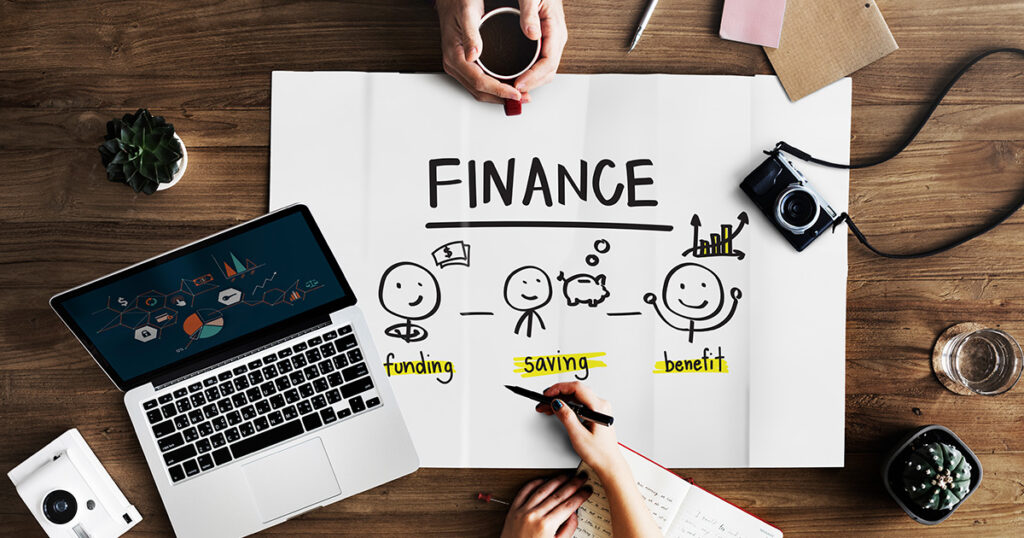The Importance of Financial Literacy 📚💡
In a world full of financial products, terms, and constantly shifting markets, mastering your personal finances is more important than ever. Financial literacy isn’t something you’re born with—it’s a skill you can develop with the right knowledge and practices. Whether you’re just starting out in your career or aiming to improve your financial situation, these 5 essential steps will set you on the path to financial freedom.
1. Understand Your Income and Expenses
The first step to mastering your finances is having a clear understanding of your income and expenses. It’s easy to get caught up in spending without really knowing where your money is going. Taking control starts with this foundational step.
- Why it works: Understanding your financial inflows and outflows allows you to create a budget, track progress, and identify areas to cut costs or save more.
- How to do it: Start by reviewing your paychecks and identifying all monthly expenses—this includes rent, utilities, subscriptions, groceries, transportation, and discretionary spending like entertainment or dining out.
Tip: Use budgeting tools like Mint, EveryDollar, or simply a spreadsheet to categorize and track your income and expenses.
2. Create a Realistic Budget
A budget is the backbone of any sound financial strategy. It helps you allocate your income effectively, ensuring you’re saving for both short-term goals (like vacations) and long-term goals (like retirement).
- Why it works: A budget ensures that your money works for you rather than against you. By setting clear spending limits, you’re less likely to overspend or get caught off guard by unexpected expenses.
- How to do it: Start with the 50/30/20 rule: 50% of your income goes to needs (housing, food, bills), 30% goes to wants (entertainment, dining), and 20% goes to savings and debt repayment.
Tip: Use envelope systems for discretionary spending or digital apps to monitor progress and adjust as needed.
3. Build Your Emergency Fund
Life has a way of throwing unexpected challenges your way—whether it’s a medical emergency, car repairs, or job loss. Having an emergency fund can help you stay afloat without dipping into credit cards or loans.
- Why it works: An emergency fund acts as a financial buffer, preventing you from going into debt during unforeseen situations.
- How to do it: Aim to save at least 3-6 months’ worth of living expenses in a high-yield savings account. Start small if necessary, but prioritize building this fund over time.
Tip: Automate transfers to your emergency fund to make sure you’re saving consistently, even if it’s just $50 a month to start.
4. Pay Off Debt: The Debt-Free Journey
Debt can feel like a heavy weight on your shoulders, but paying it off is one of the best things you can do for your financial health. High-interest debt, especially from credit cards, can quickly snowball, making it harder to build wealth over time.
- Why it works: Paying off debt frees up your cash flow, allowing you to save, invest, and plan for the future. The less you owe, the more control you have over your finances.
- How to do it: Focus on high-interest debt first (credit cards), and then tackle low-interest debts like student loans. You can use the debt snowball method (smallest debt first) or debt avalanche method (highest interest rate first), depending on your motivation.
Tip: If you have multiple debts, consider consolidating them with a lower-interest personal loan or a balance transfer card to reduce interest rates and simplify payments.
5. Invest for the Future: Building Long-Term Wealth
Investing is one of the most effective ways to grow your wealth over time. Whether you’re investing in stocks, bonds, real estate, or retirement accounts, getting your money to work for you is essential for long-term financial security.
- Why it works: Investing allows your money to grow faster than saving alone, especially when you take advantage of compound interest.
- How to do it: Start by contributing to retirement accounts like a 401(k) or IRA. Once you’ve maxed out those, consider taxable investment accounts. Index funds and ETFs are great ways to start, as they offer broad market exposure at a low cost.
Tip: Don’t try to time the market—invest consistently over time, using dollar-cost averaging to spread your investments out, so you buy at different prices and reduce the impact of market volatility.
Take Control of Your Financial Future 🌟
Mastering personal finance is a journey, not a destination. By following these five essential steps, you can build a solid financial foundation and work toward achieving your financial goals, whether it’s buying a home, retiring early, or simply living debt-free.
Remember, financial literacy takes time and practice. The more you learn and implement, the better your financial situation will be. Take control of your finances today, and you’ll reap the rewards for years to come!



